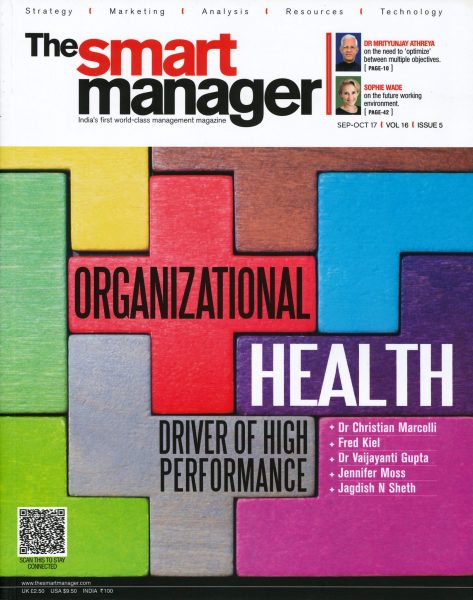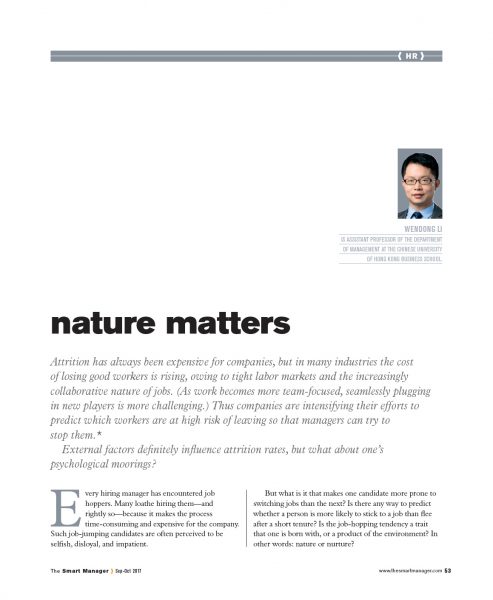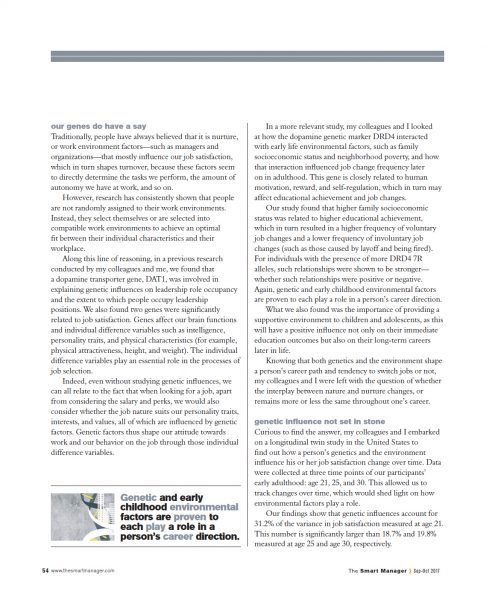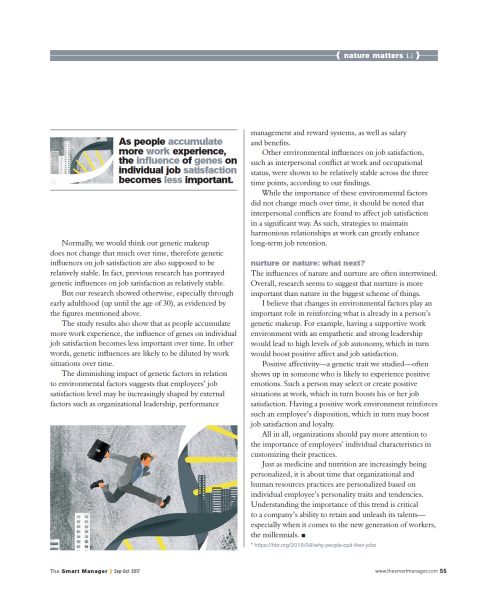Why Do Some People Switch Jobs More Often than Others?

Genetic and early childhood environmental factors are proven to each play a role in a person’s career direction. Find out more in a feature article published in the Smart Manager magazine by Prof. Wendong Li.
An article based on a study by The Chinese University of Hong Kong (CUHK) Business School researcher has recently been published in The Smart Manager, India’s first and influential management magazine. The study sheds light on the interplay of genetic (i.e., the person) and work environment and how they influence the relationship we have with our job. The article was contributed by Wendong Li, Assistant Professor of Department of Management at CUHK Business School, upon the invitation of the business magazine.
Prof. Li originally penned a research paper titled “Are Genetic and Environmental Influences on Job Satisfaction Stable over Time? A Three-wave Longitudinal Twin Study,” in collaboration with four coauthors from Arizona State University and University of Minnesota. The research paper was published by the Journal of Applied Psychology in January 2016.
In the article, Prof. Li states that in his study, he looked at how the dopamine genetic marker DRD4 interacted with early life environmental factors, such as family socioeconomic status and neighborhood poverty, and how that interaction influenced job change frequency later on in adulthood.
His study found that higher family socioeconomic status was related to higher educational achievement, which in turn resulted in a higher frequency of voluntary job changes and a lower frequency of involuntary job changes (such as those caused by layoff and being fired). Genetic and early childhood environmental factors are proven to each play a role in a person’s career direction.
In collaboration with his coauthors, Prof. Li embarked on a longitudinal twin study in the United States to find out how a person’s genetics and the environment influence his or her job satisfaction change over time. Data were collected at three time points of our participants’ early adulthood: age 21, 25, and 30.
Findings show that genetic influences account for 31.2 percent of the variance in job satisfaction measured at age 21. This number is significantly larger than 18.7 percent and 19.8 percent measured at age 25 and age 30, respectively.
Normally, people would think our genetic makeup does not change that much over time, and therefore genetic influences on job satisfaction are supposed to be relatively stable. But Prof. Li’s research showed otherwise, especially through early adulthood (up until the age of 30), as evidenced by the figures mentioned above.
The study results also show that as people accumulate more work experience, the influence of genes on individual job satisfaction becomes less important over time. In other words, genetic influences are likely to be diluted by work situations over time… Read More
Prof. Li’s article was published in The Smart Manager magazine’s September-October 2017 issue. Please click the images below to read the full article.
Prof. Li’s research paper was first featured on the School’s China Business Knowledge (CBK) website in a feature article titled “Why Do Some People Switch Jobs More Frequently Than Others? The Interplay of Genetic and Environment Influences on Job Satisfaction“. The Marketing and Communications Office at CUHK Business School disseminated the article’s English and Korean version this summer to more than 17,377 distribution points/1,103 journalists in the United States, Korea and over 20 countries in Asia Pacific. It has been widely picked up by the media around the world, with 392 clippings generated so far. The campaign has also successfully drawn media attention on the research such as Business Economic News (PDF) (Korean), Yahoo! (PDF), Sina (PDF) and more.
Source: The Smart Manager
Date published: September-October, 2017






